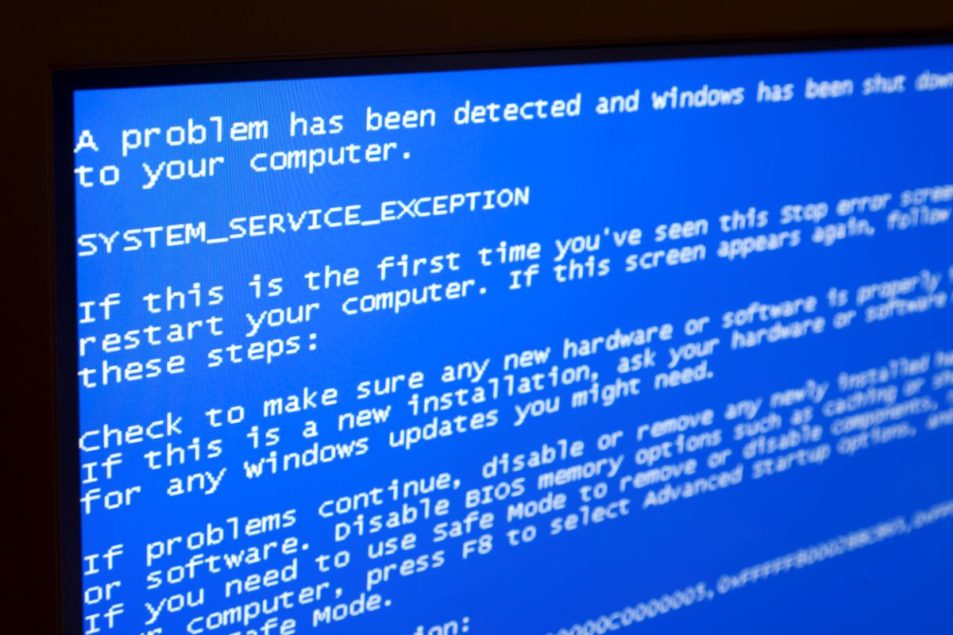Global transportation operations have been interrupted or hampered by the massive, international computer outage caused by a glitch in a software update from cybersecurity firm CrowdStrike, causing the Microsoft Windows operating system to crash.
“Over-reliance on several key vendors in corporate IT highlights a broader need for supplier diversification,” said Andrei Quinn-Barabanov, supply chain industry practice lead at Moody’s. “It goes beyond infrastructure technology into customized and high-performance components and services where single, sole or dominant sources create consequential bottlenecks.”
The outage, which started around 6pm U.S. East Coast time July 18, affected banks, health-care providers and TV broadcasters, as well as a wide range of businesses around the world. Ports, too, suffered delays in receiving ships and trucks. But perhaps most affected were airlines, with planes grounded and services delayed, according to CNBC. The news service said that air freight was “hit the hardest,” and the recovery of the complex air cargo network could last days or weeks. However, UPS said its airline continues to operate normally. The New York Times reported July 19 that, at points, flight cancelations amounted to nearly 8% percent of all scheduled departures around the world. Airlines have now started to resume flights.
Microsoft estimates there are 1.6 billion Windows computers worldwide, constituting 72% of all computers, according to Statista.
“We have seen in 2024 how vulnerable our global maritime supply chains are following the disruption caused by conflict in the Red Sea,” said Niall van de Wouw, chief airfreight officer at Xeneta AS, an ocean and air freight rate benchmarking and market analytics platform. “Now we see vulnerabilities exposed in our air supply chains due to IT failure. We benefit greatly from technology and have grown dependent on it — but there is a price to pay when things go wrong.”
Read More: Global IT Collapse Puts Cyber Firm CrowdStrike in Spotlight
In shipping, China Merchants Port Holdings Company Ltd, which owns Shanghai International Port ( Group) Co., Ltd., the largest port operator in mainland China — the country with seven of the world’s top ten ports by volume — and operates terminals at Hong Kong and Kaohsiung, South Korea, did not respond to a request for comment.
The Maritime and Port Authority Singapore, part of the Ministry of Transport of the Government of Singapore, and which operates the Port of Singapore (the second largest in the world by volume), refused to comment on any impact on port operations, saying the matter was “still under investigation.”
In the U.S. one container terminal of seven at the Port of Los Angeles was affected by the outage overnight, said Philip Sanfield, communications director for the Port of Los Angeles, although he couldn’t give specifics. He said that terminal is now fully operational, and all trucks in the queue have been processed into the terminal. “All terminals are operating as usual today,” Sanfield said July 19.
Port Houston, the largest port in the U.S. by volume, was impacted, causing “minimal delays,” said Lisa Ashley, director of media relations. Vessel operations were not affected, but truck gates were for about three-and-a-half hours, Ashley said. They were opened again shortly before 9am East Coast time on July 19.
A spokesperson for The Port Authority of New York and New Jersey, which governs the largest airport system in the United States, and four marine container terminals, including the Port of Newark (fourth largest in the U.S., by volume), said the software glitch had not affected it, but that some seaport tenants saw some issues that led to delayed gate openings in some cases. The spokesperson said some airlines were also experiencing delays or cancellations.
According to DutchNews.nl, two terminals at the Port of Rotterdam, in the Kingdom of the Netherlands, came to a halt, making loading and unloading impossible at the ECT Euromax and ECT Delta ship terminals, leaving several ships at the quay unable to be unloaded and loaded. Other companies in the port were also impacted by the outage, but the port itself experienced no further problems, a spokesperson said. “Crucial processes in the port are all continuing,” the spokesperson said.
However, at nearby Schiphol Airport, the world’s 14th largest by volume, every flight was delayed or canceled, causing “chaos.”
In the U.K., the ports of Felixstowe and Tilbury were all reported by Loadstar to be suffering from major IT outages preventing landside operations on the morning of July 19. Destin8, a U.K. port community system that facilitates the moving of cargo, shared between Felixstowe, Tilbury, the Port of Harwich and London Thamesport and Great Yarmouth, was down.
In rail, the software crash had varying levels of impact across Union Pacific’s freight network, but most major rails in the U.S. were operating normally, and UP returned to full operations by the afternoon of July 19, reported CNBC.



